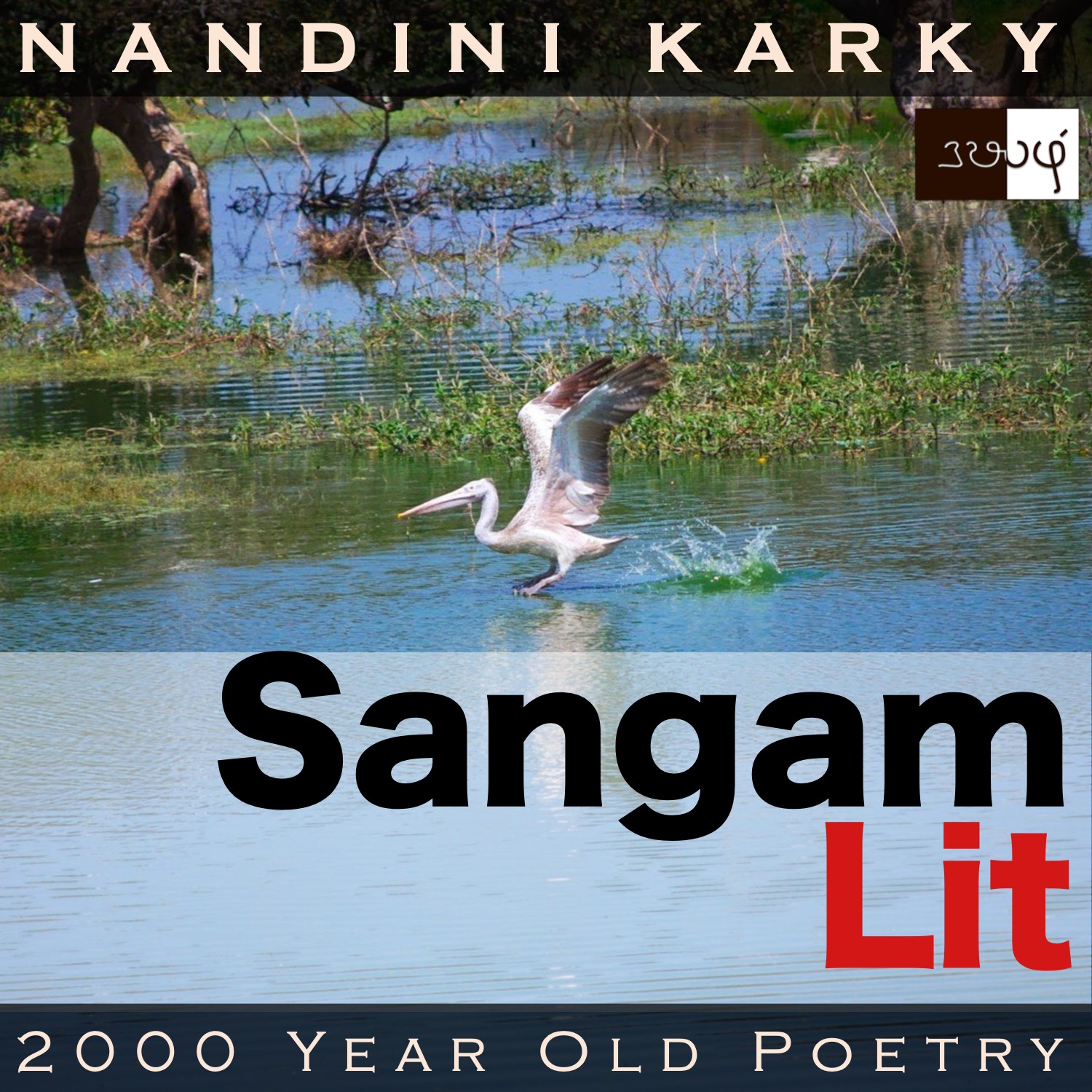Podcast: Play in new window | Download
Subscribe: Apple Podcasts | Spotify | Amazon Music | Android | iHeartRadio | TuneIn | RSS | More

In this episode, we perceive scenes from the shore reflecting the inner life of the lady, as portrayed in Sangam Literary work, Natrinai 211, penned by Kottiyoor Nallanthaiyaar. The verse is set in the coastal regions of ‘Neythal’ and speaks in the voice of the confidante to herself, while conveying a hidden message to the man, listening nearby.
யார்க்கு நொந்து உரைக்கோ யானே-ஊர் கடல்
ஓதம் சென்ற உப்புடைச் செறுவில்,
கொடுங் கழி மருங்கின், இரை வேட்டு எழுந்த
கருங் கால் குருகின் கோள் உய்ந்து போகிய
முடங்கு புற இறவின் மோவாய் ஏற்றை,
எறி திரை தொகுத்த எக்கர் நெடுங் கோட்டுத்
துறு கடற் தலைய தோடு பொதி தாழை
வண்டு படு வான் போது வெரூஉம்
துறை கெழு கொண்கன் துறந்தனன் எனவே?
Opening with the phrase ‘யார்க்கு நொந்து உரைக்கோ’ meaning ‘To whom shall I lament about this?’ the verse kindles our curiosity. I’m stunned by how similar the phrase is in tone with the line ‘யாரிடம் சொல்வேன்’ used in countless contemporary Tamil lyrics and dialogues, with the exact same meaning. A literary tradition that seems to flow through the ages! We meet with the familiar sights of the shore in ‘கருங் கால் குருகு’ ‘the black-legged seabird’ , ‘முடங்கு புற இறவு’ ’shrimp with a curved back’ , ’எக்கர்’ ‘the fine sand dunes’ and the fragrant ‘தாழை’ or ‘pandanus’ tree. The verse ends with the rhythmic sounding words ‘துறை கெழு கொண்கன் துறந்தனன் எனவே’ meaning ‘that the lord of the seas has abandoned us’. Let’s step into that shore to explore!
The man and lady have been in a love relationship for a while and the man seems intent only on continuing the trysts with her. The lady is worried seeing no intention on his part to formalise the union. The confidante, acting as her alter ego, decides to convey the angst to the man in a hidden manner. One day, seeing him arrive at the lady’s house, pretending not to notice him, the confidante says to herself, “To whom shall I lament about this? Spreading wherever the roving waters of the sea roamed, the salt spreads in the pans of the curved marshland. The black-legged seabird scours the backwaters with a desire to hunt. Escaping from the claws of the bird, the moustached male shrimp with a curved back rushes towards the long shore, which is decked with dunes collected by the rising waves. Seeing the bee-buzzing white flowers of the ‘thazhai’ tree, densely packed with long fronds, the male shrimp trembles in fear. Such is the land of the lord! To whom shall I lament that he has forsaken me?” As in other verses, the confidante speaks in the voice of the lady to convey a pointed message to the man. With these words, the confidante highlights to the man, the terrified state of the lady, as he continues to delay seeking her hand in marriage.
All that we saw was a detailed description of the man’s domain. How does the confidante express all these intricate details? To understand, we have to dive deeper. The confidante starts with a question about who she can lament about this and does not explain what her lament is, until the end of the poem. She then talks about the seas where a black-legged seabird roves, hungry for food, and sighting a shrimp, it pounces on it. The said shrimp escapes and rushes towards the shore. As it heaves a sigh of relief, it turns its eyes to the pandanus tree on the shore and sighting the white flowers of the tree, is terrified, mistaking it for another white seabird that intends to feed on it. The confidante says these words as if describing the land of the lord but she conceals her message within. The male shrimp escaping the seabird’s attack pertains to the lady, who tries to evade the words of slander being spoken by the womenfolk of that town. The shrimp’s terror seeing the pandanus tree signifies the fear the lady has about whether her mother will speak angry words, hearing the bee-buzzing rumours of her neighbours about her daughter’s relationship with the man. Thus, the confidante paints a stark picture of the lady’s state, having no one for support as she waits for the man to seek her hand in marriage!
Sangam poetry seems to be at the translation level, only a scenic tour of the land. The sights and the life are revealed with precise and picturesque words. It’s only when we move on to interpretation level, we see how the poets conceal stories about expectations and angst in relationships. These verses are indeed a rare art form, filled with beauty that pleases the eyes and also, shines with a deep meaning at its heart!




Share your thoughts...